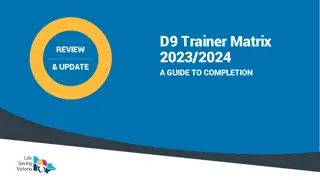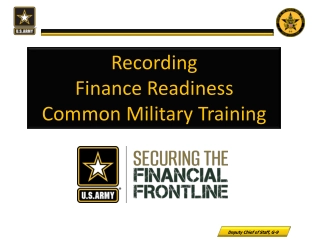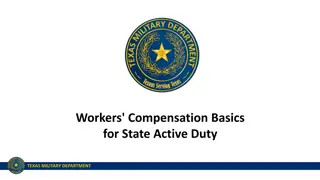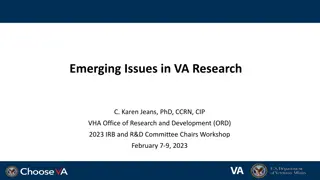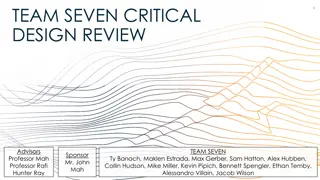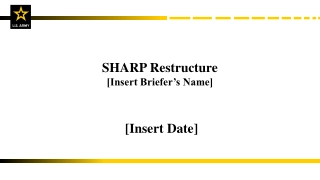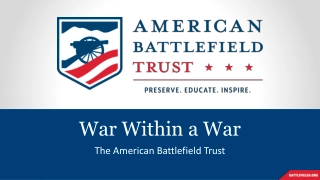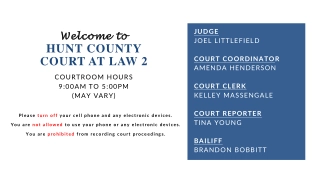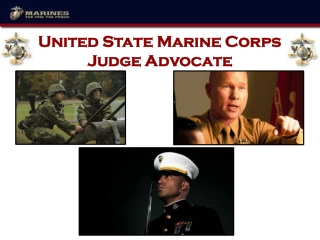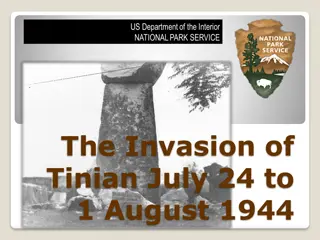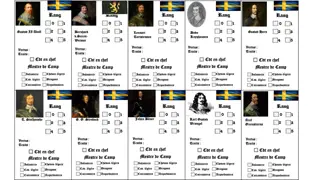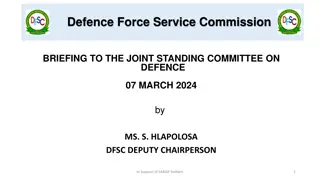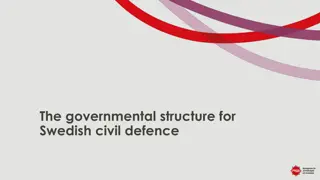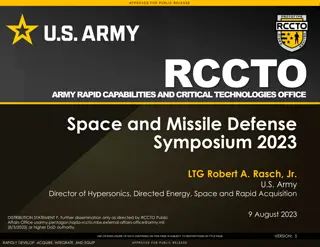The Seven Military Clauses
Explore the various military clauses and congressional powers outlined in the US Constitution, including the authority to raise armies, maintain a navy, regulate land and naval forces, call forth the militia, and more. The comparison between professional armies/navies and militia, as well as the restrictive clauses on states and individuals, provides insight into the defense structure at the framing of the Constitution.
Download Presentation
Please find below an Image/Link to download the presentation.
The content on the website is provided AS IS for your information and personal use only. It may not be sold, licensed, or shared on other websites without obtaining consent from the author. Download presentation by click this link. If you encounter any issues during the download, it is possible that the publisher has removed the file from their server.
Presentation Transcript
The Seven Military Clauses Robert Leider Assistant Professor of Law
Five Congressional Powers Congress shall have Power . . . To raise and support Armies, but no Appropriation of Money to that Use shall be for a Term longer than two years; To provide and maintain a Navy; To make Rules for the Government and Regulation of the land and naval Forces To provide for calling forth the Militia to execute the Laws of the Union, suppress Insurrections and repel Invasions To provide for organizing, arming, and disciplining, the Militia, and for governing such Part of them as may be employed in the Service of the United States, reserving to the States, respectively, the Appointment of the Officers, and the Authority of training the Militia according to the discipline prescribed by Congress. U.S. Const. art. I, 8, cl. 12-16
Two Restrictive Clauses No State shall, without the Consent of Congress, . . . Keep Troops, or Ships of War in time of peace . . . . U.S. Const. art. I, 10, cl. 3 No person shall be held to answer for a capital, or otherwise infamous crime, unless on a presentment or indictment of a Grand Jury, except in cases arising in the land or naval forces, or in the Militia, when in actual service in time of War or public danger; U.S. Const. amend. V
Armies/Navies versus Militia Armies/Navies Professional (full- time) Voluntary enlistment Subject to military law at all times Defensive or offensive conflicts Militia Nonprofessional service Conscripted (in theory) Subject to military law when on duty Defensive conflicts only
Congressional Powers Congress shall have Power . . . To raise and support Armies, but no Appropriation of Money to that Use shall be for a Term longer than two years; U.S. Const. art. I, 8, cl. 12
Congressional Powers Congress shall have Power . . . To provide and maintain a Navy; U.S. Const. art. I, 8, cl. 13
Congressional Powers Congress shall have Power . . . To make Rules for the Government and Regulation of the land and naval Forces U.S. Const. art. I, 8, cl. 14
Congressional Powers Congress shall have Power . . . To provide for calling forth the Militia to execute the Laws of the Union, suppress Insurrections and repel Invasions U.S. Const. art. I, 8, cl. 15
Congressional Powers Congress shall have Power . . . To provide for organizing, arming, and disciplining, the Militia, and for governing such Part of them as may be employed in the Service of the United States, reserving to the States, respectively, the Appointment of the Officers, and the Authority of training the Militia according to the discipline prescribed by Congress. U.S. Const. art. I, 8, cl. 16
State Prohibitions No State shall, without the Consent of Congress, . . . Keep Troops, or Ships of War in time of peace . . . U.S. Const. art. I, 10, cl. 3
State Prohibitions (cont.) No State shall, without the Consent of Congress, . . . engage in War, unless actually invaded, or in such imminent Danger as will not admit of delay. . . U.S. Const. art. I, 10, cl. 3
State Prohibitions (cont.) No State shall, without the Consent of Congress, . . . engage in War, unless actually invaded, or in such imminent Danger as will not admit of delay. . . U.S. Const. art. I, 10, cl. 3
Federal Prohibition No person shall be held to answer for a capital, or otherwise infamous crime, unless on a presentment or indictment of a Grand Jury, except in cases arising in the land or naval forces, or in the Militia, when in actual service in time of War or public danger; U.S. Const. amend. V
Constitution and the Military Armies and Navies Congress Raises and supports Governs President Commands Appoints officers Soldiers and sailors subject to military law at all times States restricted from having armies in peacetime without congressional consent Militia Congress Organizes, arms, and disciplines Provides for calling forth to enforce laws, suppress insurrections, and repel invasions May subject to military law when called forth in emergencies President Commands when in federal service States Conduct training Appoint officers Command when not federalized Citizenry Retain the right to keep and bear arms
Collapsing the Distinction End of universal militia training and the rise of the volunteers Conscription into the military Existence of federal reserve (part-time) forces attached directly to the federal military Dual enlistment: National Guard is both part of the organized militia and a federal reserve force


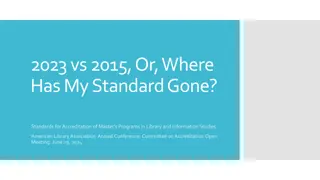

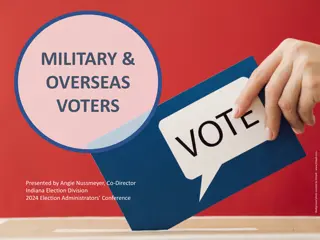



![RE: ELECTORAL MATTERS AMENDMENT BILL [ B42-2023]](/thumb/18837/re-electoral-matters-amendment-bill-b42-2023.jpg)






